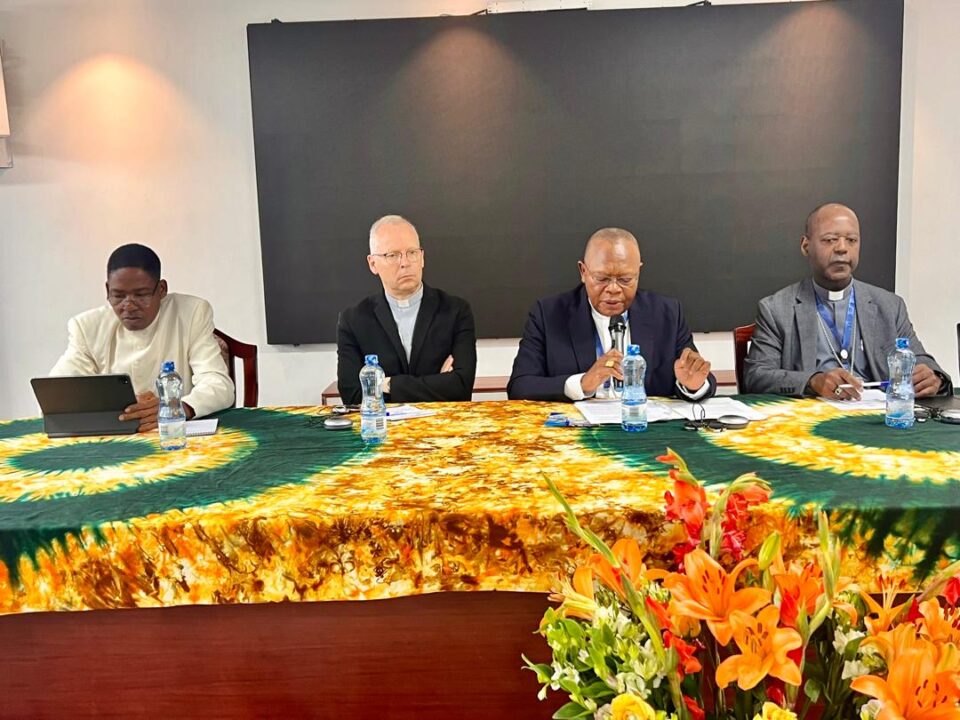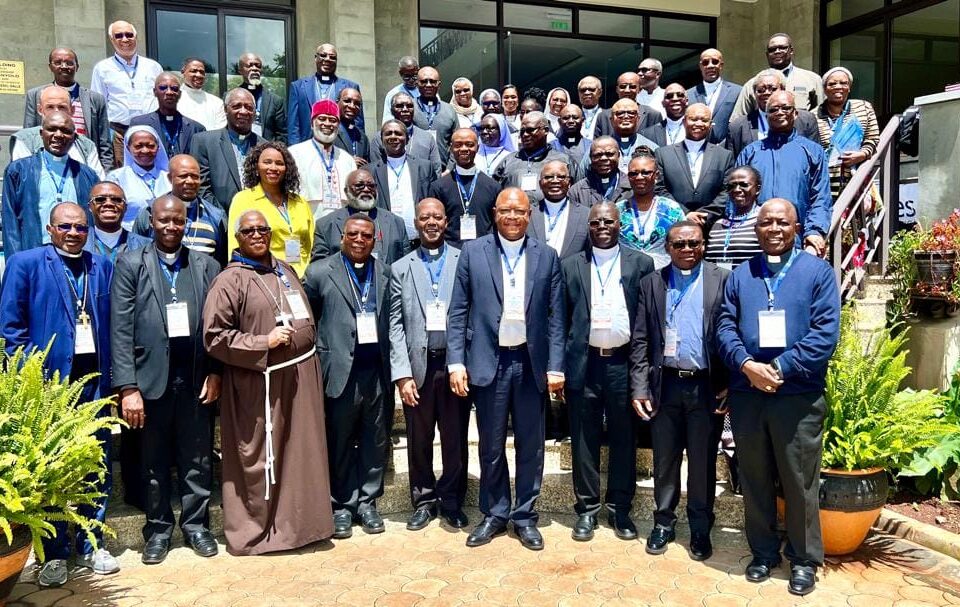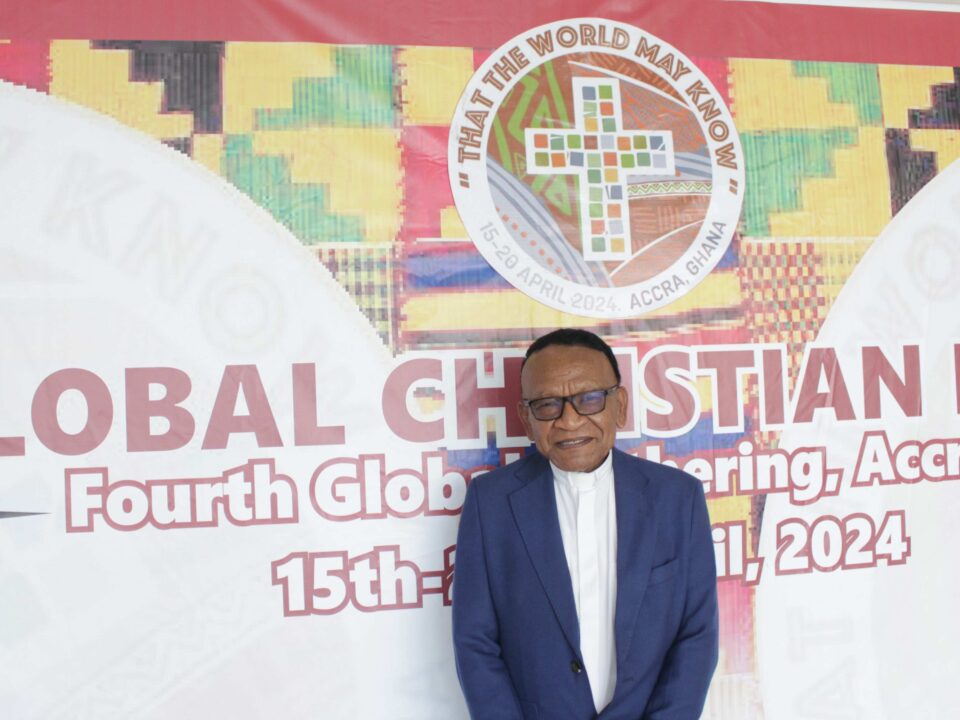 With this solemn concelebration we open the thirteenth Ordinary General Assembly of the Synod of Bishops on the theme The New Evangelization for the Transmission of the Christian Faith. This theme reflects a programmatic direction for the life of the Church, its members, families, its communities and institutions. And this outline is reinforced by the fact that it coincides with the beginning of the Year of Faith, starting on 11 October, on the fiftieth anniversary of the opening of the Second Vatican Ecumenical Council. I give a cordial and grateful welcome to you who have come to be part of the Synodal Assembly, in particular to the Secretary-General of the Synod of Bishops, and to his colleagues. I salute the fraternal delegates of the other churches and ecclesial communities as well as all present, inviting them to accompany in daily prayer the deliberations which will take place over the next three weeks.
With this solemn concelebration we open the thirteenth Ordinary General Assembly of the Synod of Bishops on the theme The New Evangelization for the Transmission of the Christian Faith. This theme reflects a programmatic direction for the life of the Church, its members, families, its communities and institutions. And this outline is reinforced by the fact that it coincides with the beginning of the Year of Faith, starting on 11 October, on the fiftieth anniversary of the opening of the Second Vatican Ecumenical Council. I give a cordial and grateful welcome to you who have come to be part of the Synodal Assembly, in particular to the Secretary-General of the Synod of Bishops, and to his colleagues. I salute the fraternal delegates of the other churches and ecclesial communities as well as all present, inviting them to accompany in daily prayer the deliberations which will take place over the next three weeks.
The readings for this Sunday’s Liturgy of the Word propose to us two principal points of reflection: the first on matrimony, which I will touch shortly; and the second on Jesus Christ, which I will discuss now. We do not have time to comment upon the passage from the Letter to the Hebrews but, at the beginning of this Synodal Assembly, we ought to welcome the invitation to fix our gaze upon the Lord Jesus, “crowned with glory and honour, because of the suffering of death (2:9). The word of God places us before the glorious One who was crucified, so that our whole lives, and in particular the commitment of this Synodal session, will take place in the sight of him and in the light of his mystery. In every time and place, evangelization always has as its starting and finishing points Jesus Christ, the Son of God (cf. Mk 1:1); and the Crucifix is the supremely distinctive sign of him who announces the Gospel: a sign of love and peace, a call to conversion and reconciliation. My dear Brother Bishops, starting with ourselves, let us fix our gaze upon him and let us be purified by his grace.
I would now like briefly to examine the new evangelization, and its relation to ordinary evangelization and the mission ad Gentes. The Church exists to evangelize. Faithful to the Lord Jesus Christ’s command, his disciples went out to the whole world to announce the Good News, spreading Christian communities everywhere. With time, these became well-organized churches with many faithful. At various times in history, divine providence has given birth to a renewed dynamism in the Church’s evangelizing activity. We need only think of the evangelization of the Anglo-Saxon peoples or the Slavs, or the transmission of the faith on the continent of America, or the missionary undertakings among the peoples of Africa, Asia and Oceania. It is against this dynamic background that I like to look at the two radiant figures that I have just proclaimed Doctors of the Church, Saint John of Avila and Saint Hildegard of Bingen. Even in our own times, the Holy Spirit has nurtured in the Church a new effort to announce the Good News, a pastoral and spiritual dynamism which found a more universal expression and its most authoritative impulse in the Second Vatican Ecumenical Council. Such renewed evangelical dynamism produces a beneficent influence on the two specific “branches” developed by it, that is, on the one hand the Missio ad Gentes or announcement of the Gospel to those who do not yet know Jesus Christ and his message of salvation, and on the other the New Evangelization, directed principally at those who, though baptized, have drifted away from the Church and live without reference to the Christian life. The Synodal Assembly which opens today is dedicated to this new evangelization, to help these people encounter the Lord, who alone who fills our existence with deep meaning and peace; and to favour the rediscovery of the faith, that source of grace which brings joy and hope to personal, family and social life. Obviously, such a special focus must not diminish either missionary efforts in the strict sense or the ordinary activity of evangelization in our Christian communities, as these are three aspects of the one reality of evangelization which complement and enrich each other.
 With this solemn concelebration we open the thirteenth Ordinary General Assembly of the Synod of Bishops on the theme The New Evangelization for the Transmission of the Christian Faith. This theme reflects a programmatic direction for the life of the Church, its members, families, its communities and institutions. And this outline is reinforced by the fact that it coincides with the beginning of the Year of Faith, starting on 11 October, on the fiftieth anniversary of the opening of the Second Vatican Ecumenical Council. I give a cordial and grateful welcome to you who have come to be part of the Synodal Assembly, in particular to the Secretary-General of the Synod of Bishops, and to his colleagues. I salute the fraternal delegates of the other churches and ecclesial communities as well as all present, inviting them to accompany in daily prayer the deliberations which will take place over the next three weeks.
With this solemn concelebration we open the thirteenth Ordinary General Assembly of the Synod of Bishops on the theme The New Evangelization for the Transmission of the Christian Faith. This theme reflects a programmatic direction for the life of the Church, its members, families, its communities and institutions. And this outline is reinforced by the fact that it coincides with the beginning of the Year of Faith, starting on 11 October, on the fiftieth anniversary of the opening of the Second Vatican Ecumenical Council. I give a cordial and grateful welcome to you who have come to be part of the Synodal Assembly, in particular to the Secretary-General of the Synod of Bishops, and to his colleagues. I salute the fraternal delegates of the other churches and ecclesial communities as well as all present, inviting them to accompany in daily prayer the deliberations which will take place over the next three weeks.



